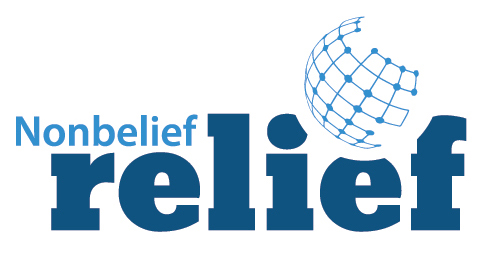
A cutting-edge legal challenge of IRS privileging of churches and related charities has experienced a technical setback, but the Freedom From Religion Foundation says it is undeterred.
After being thrown out of court last week, FFRF will be refiling its challenge, after its plaintiff Nonbelief Relief jumps through some legal hoops.
U.S. District Judge Timothy J. Kelly of the U.S. District Court in D.C. issued a 11-page Memorandum Opinion on Friday, Jan. 10, dismissing a challenge filed by FFRF on behalf of Nonbelief Relief, a charity related to FFRF.
Nonbelief Relief filed suit in October 2018 after its tax-exempt status was revoked by the IRS. FFRF and Nonbelief Relief are challenging the IRS provision that preferentially exempts churches and related organizations from reporting the Form 990 annual information returns required of all other tax-exempt groups. Nonbelief Relief, founded in 2015, publicly stated that it would not file the annual Form 990s so long as churches and their related charities are not required to.
Nonbelief Relief suffered serious injury when the IRS refused its request — citing the discriminatory treatment of churches vis-à-vis other tax-exempt nonprofits — to be excused from registering the annual Form 990. Nonbelief Relief’s tax exemption was subsequently revoked on Aug. 20, 2018, for failure to file the Form 990 return for three consecutive years. It has had to basically fold up shop and can no longer receive charitable contributions.
Kelly has not completely closed the door, noting that the “decision does not mean that the church exemption is immune from judicial review. NonBelief Relief could claim a refund for the taxes it paid, and sue when the refund was denied, arguing that its 501(c)(3) status was unconstitutionally revoked.” FFRF paid $450.78 in IRS income plus a corporate franchise tax of $182.90. Nonbelief Relief will be seeking a refund on its taxes in the near future. If and when that refund is refused, Nonbelief Relief and FFRF will refile the suit.
FFRF contends that the court improperly dismissed Nonbelief Relief’s broader challenge to the exemption provided to churches, ruling that the organization lacks standing. According to the judge, Nonbelief Relief’s claim of unequal treatment when compared to churches “is not ongoing or imminent,” because Nonbelief Relief has lost its exempt status, and therefore will not have to fill out a Form 990.
“This circular reasoning would bar any group from challenging preferential treatment of religious organizations,” says Annie Laurie Gaylor, who is administrator of Nonbelief Relief and FFRF co-president. “We are so distressed that Nonbelief Relief is in limbo, and unable to help others on behalf of freethought in a world fraught with natural disasters, hunger, displaced people and discrimination that is often religion-based. This injury extends far beyond just the loss of Nonbelief Relief’s tax-exempt status.”
Nonbelief Relief is a humanitarian group created by FFRF’s executive board in 2015 as a separate 501(c)(3) entity for atheists, agnostics and freethinkers to remediate conditions of human suffering and injustice on a global scale “whether the result of natural disasters, human actions or adherence to religious dogma.”
The court action not to require the same reporting by churches and their charities creates a grave lack of accountability, not just vis-a-vis the IRS, but also for the public about what is being done with their tax-deductible donations.
“The Rev. Jim Jones was only able to amass a treasury, an arsenal and move nearly 1,000 Americans, including a sizeable number of foster children, out of the country because his church, The Peoples Temple, was not accountable for its finances,” says Gaylor. More than 900 Americans were murdered or forced to commit suicide in Jonestown, Guyana, in November 1978, making it the largest mass suicide in U.S. history. Gaylor said Jonestown is the most dramatic example, but that lack of accountability permits churches to hide assets, such as when being sued for pedophilia, and also makes them targets of in-house embezzlement.
FFRF first filed suit to challenge the disparate treatment of churches compared to other 501(c)3 nonprofits in December of 2012, representing itself and a chapter. The courts determined that in order for FFRF to prove injury and have standing to sue, it would have to stop filing the Form 990 and forfeit its tax exemption, something FFRF felt it could not do without jeopardizing its future as a group with more than 30,000 current members.
The defendant when the case was filed was David J. Kautter, acting IRS commissioner, and is now IRS Commissioner Charles P. Rettig. Representing FFRF in the suit is outside litigator Richard L. Bolton, with FFRF Attorneys Patrick Elliott and Sam Grover serving as co-counsel. The lawsuit was filed in the U.S. District Court for the District of Columbia.

